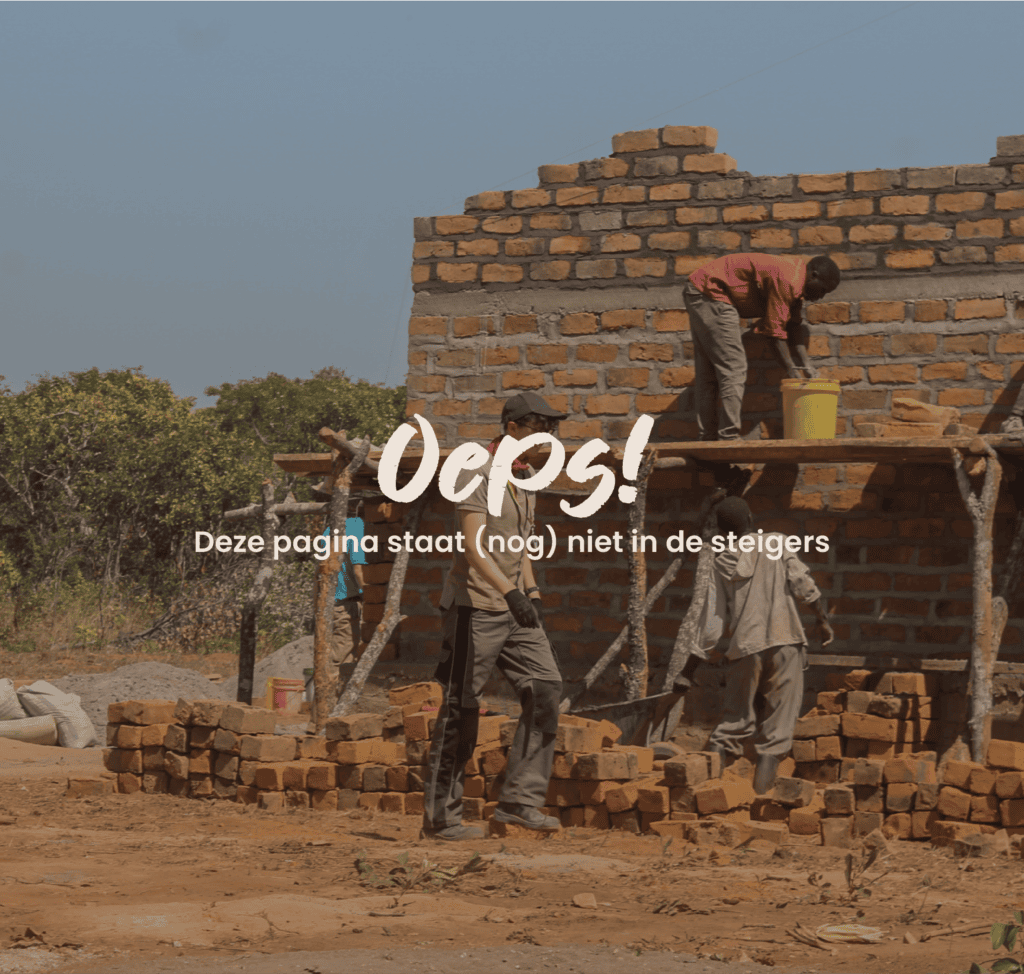Je hebt een pagina gevonden die er (nog) niet is.
Het kan zijn dat sommige links niet goed werken of dat bepaalde pagina’s zijn verplaatst. Het is ook mogelijk dat het webadres een klein foutje bevat. Controleer het adres even om zeker te zijn.
Krijg je dit bericht na het klikken op een link op onze website? Laat het ons weten!
Stuur een mailtje naar ondersteuning@worldservants.nl, dan zorgt het webteam van World Servants ervoor dat de link zo snel mogelijk wordt hersteld.
Om je op weg te helpen:
- Bekijk het overzicht van de projecten.
- Meld je aan voor een project via ons aanmeldformulier.
- Lees wat de impact is van een World Servants project.
- Word supporter van World Servants.
- Neem contact met ons op.
